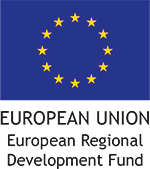This time of the year, when all pages are blank and ready to be filled with whatever you want, I tend to organize the work ahead. This year is going to be interesting regarding marine litter in the Baltic Sea. Thanks to a recently EU funded project SPICE (‘Implementation and development of key components for the assessment of Status, Pressures and Impacts, and Social and Economic evaluation in the Baltic Sea marine region’), which among other issues, deals with marine litter, we hope to advance a lot in the definition of marine litter baselines and assessment in the Baltic Sea. We will search answers for how much and what type of litter do we have on beaches and also on the seafloor? How can we evaluate whether the situation is improving or getting worse compared to some years back?
Also, we will work more on microlitter: what data do we have in the Baltic Sea area? What are we lacking of? In parallel, as part of the regular activities of HELCOM we will continue working on the implementation of the actions included in the Regional Action Plan on Marine Litter addressing land-based and sea-based sources on marine litter in the Baltic Sea. Such implementation is a priority of the European Union Chairmanship of HELCOM (July 2016-June 2018), which is a sign of high relevance of the topic for the region. Marine litter will be in the agenda of the High-level session to be held in February in Helsinki on the occasion of the 38th Meeting of the Helsinki Commission, to discuss how to achieve ocean-related Sustainable Development Goals in the Baltic Sea and progress in addressing regional environmental challenges.
Now that I read this twice, there is a lot of challenging work ahead us. Wish us luck!
Editorial note: The text was submitted for Blastic project in January 2017

